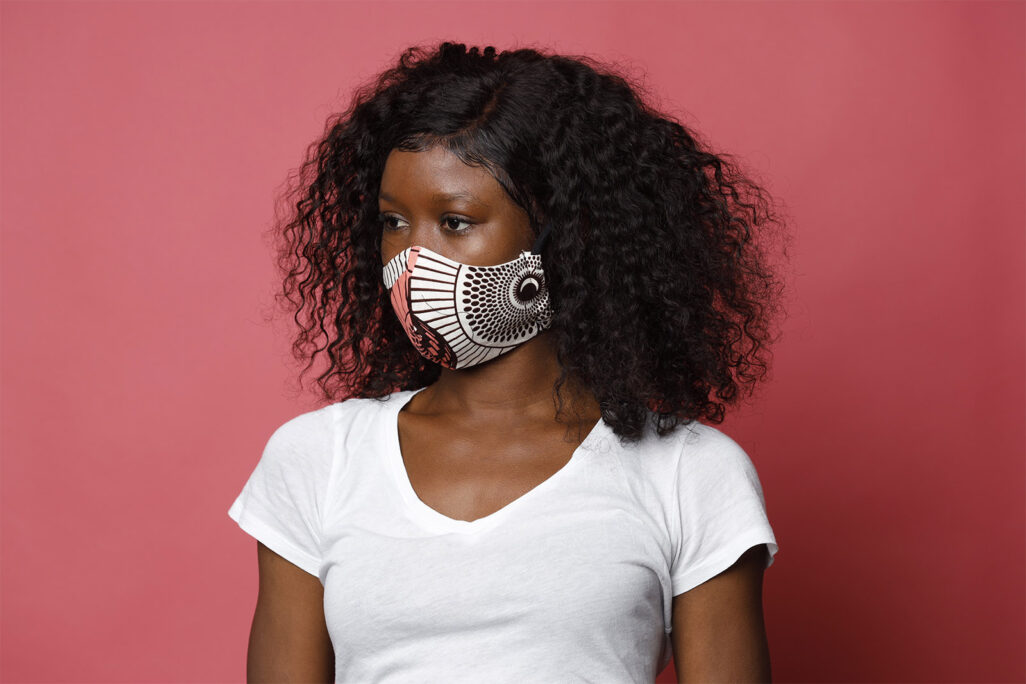
Kuchinate is a collective of African women asylum seekers living in Israel. Before the pandemic, it provided group therapy and a source of supplemental income. Since the outbreak, it has become an essential lifeline as its members face a sustained economic crisis.
“The situation of the asylum seeker population has deteriorated significantly," Ruth Garon, the collective's marketing director, says of the coronavirus period. “It's a community that no one thinks about. That was true before the pandemic, and now it has intensified and become catastrophic.”
Israel is home to thirty thousand African asylum seekers, the majority of whom are from Sudan and Eritrea. Many of them live in South Tel Aviv, especially in the neighborhoods near the city’s central bus station. Their concentration in already distressed neighborhoods has sometimes led to tensions with other communities living in South Tel Aviv, and to demands for the refugee population to be dispersed more evenly throughout the country.
In recent years, public controversy has flared repeatedly about the right of asylum seekers to stay in the country. Asylum seekers from Sudan and Eritrea have the legal right to stay in Israel, due to the violence in their countries of origin. Yet they face a slow or nonexistent path to citizenship, and lack access to basic services and resources in the meantime.
Kuchinate, which means crochet in Tigrinya, was founded in 2011. Today, it has 250 members, all women, some of whom are survivors of human trafficking, torture, and sexual abuse.
Before the pandemic, members learned how to weave baskets, which were sold in the collective’s gallery in South Tel Aviv, at art sales, and in private homes around the country.
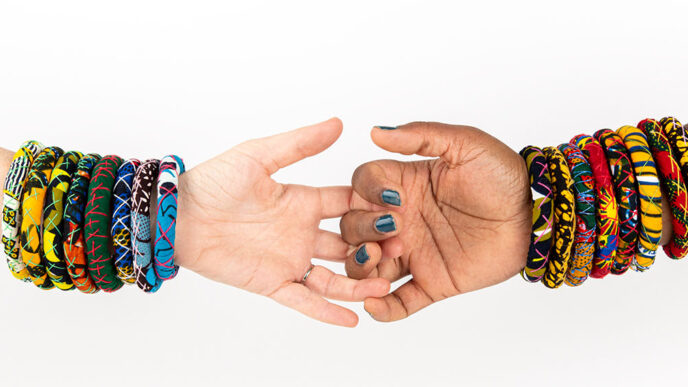
With the outbreak of the coronavirus pandemic, however, the collective has had to shift its focus to meeting more immediate financial needs.
“People who had jobs, lost them,” Garom says. “The community is in a terrible state. Those who are hungry have nowhere to turn, and all of the school programming on Zoom is irrelevant because they have no computers. Whole families share one phone, and the children have no access to technology.”
The coronavirus pandemic dealt a hard blow to the collective and its members. Some of the women, like those who work for the collective in management positions, still have stable jobs. Others needed immediate assistance when lockdowns shuttered many workplaces. Among them were many single mothers.
"Up until coronavirus, half of the women relied on the collective for supplemental income," says Garon. "For example, someone who worked in cleaning received 3,500 NIS, and Kuchinate provided her with another ,1,500 to 2,000 NIS. It was critical for survival. Once they lost their jobs, the earth fell out from under their feet."
Emergency: Hotline and food stamps
The pandemic created an emergency for the Kuchinate collective. The psycho social team had to reach out on the phone to tens of women and create a help line for emergencies. The long term economic support model had to be supplemented to immediate financial support and food assistance in the form of food vouchers and rent assistance. Kuchinate’s core ideology is for the collective to earn money in dignity to ensure well being and mental health.
"Kuchinate's core value is the economic empowerment of women," says Garon. "Food stamps seem like the opposite of our vision, but it's an emergency and in an emergency we put ideology aside and allow people to survive."
With the help of the volunteers, a hotline was established for requests for assistance. "There was, for example, someone who was going to be evicted from her apartment," says Garon. "We organized to get her an extension on rent and raised money for her.”
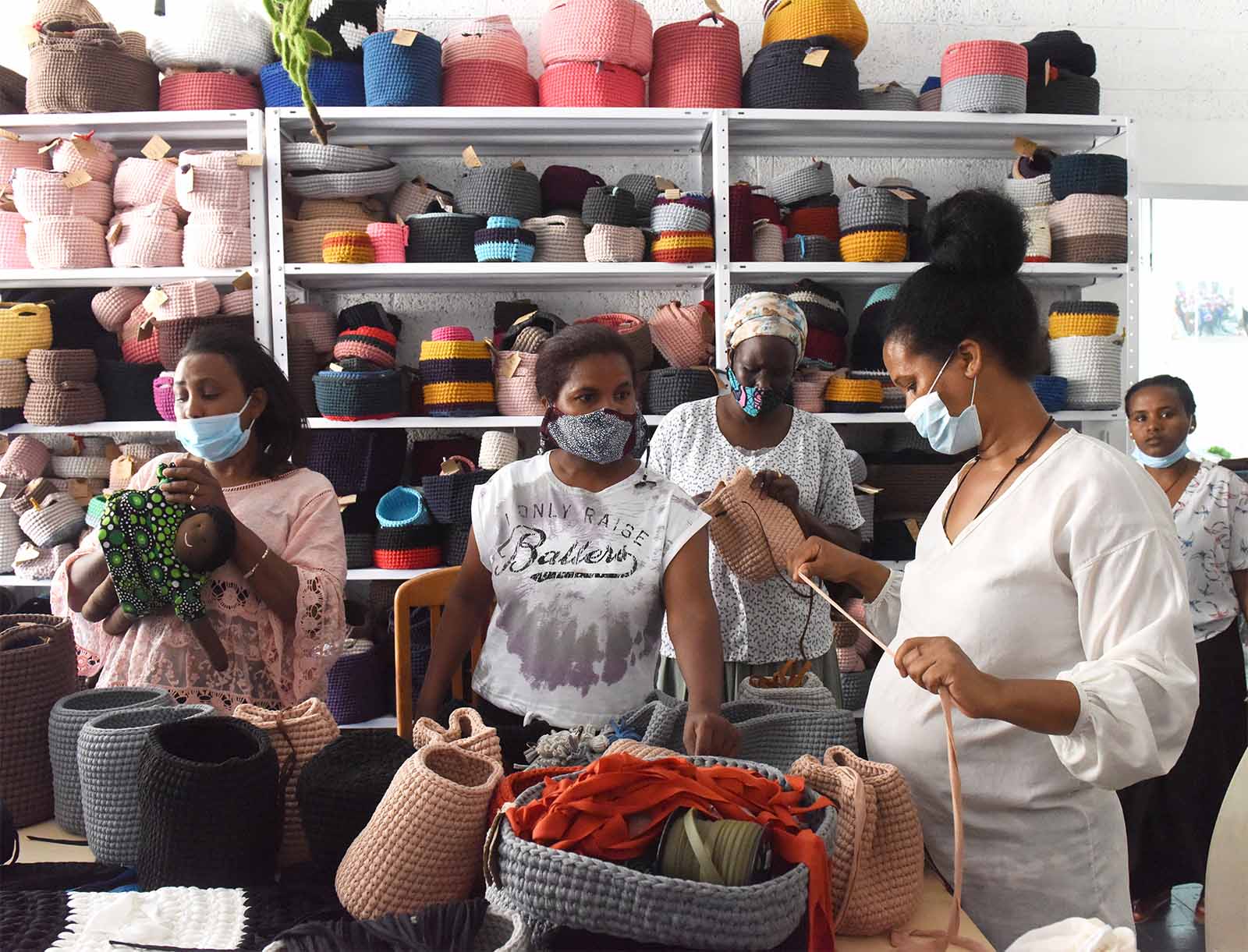
Abrehet Gebrezgbher has been living in Israel for nine years, and for the past three and a half years has worked for the collective as a product manager. "Thanks to my job at Kuchinate, I got by," she says.
Her husband, who came to Israel before her, has been unemployed since March and their two children are at home with him.
"At first, when they said there would be a lockdown, I thought it would be a few days. We did not think it would be this long,” Gebrazger says. “Most of the wives are not working and now both the wife and the husband are at home. Here in Kuchinate, we had help. We got coupons.”
“In Israel, even if the husband and wife both work, it is not enough. The situation is difficult. Because we are refugees, there is no one to take care of us here. We know that if you do not get help like I get in Kuchinate, you get nothing," she continues.
Allowing work to continue
The hotline and food stamps were not the only changes in the collective. Unlike many workplaces that have reduced activity and outsourced workers, the Kuchinate collective has taken the opposite approach and increased production to allow all women to continue working.
"Our specialty is crocheting," says Garon, "but once the coronavirus started we thought about what to do and decided to try sewing masks. We received a donation of 30 sewing machines from the United Nation High Commission for Refugees (UNHCR) and Manos Unidas in Spain. Some of the machines are in the studio and some in the women's homes. Volunteers came to their homes and taught them how to work."
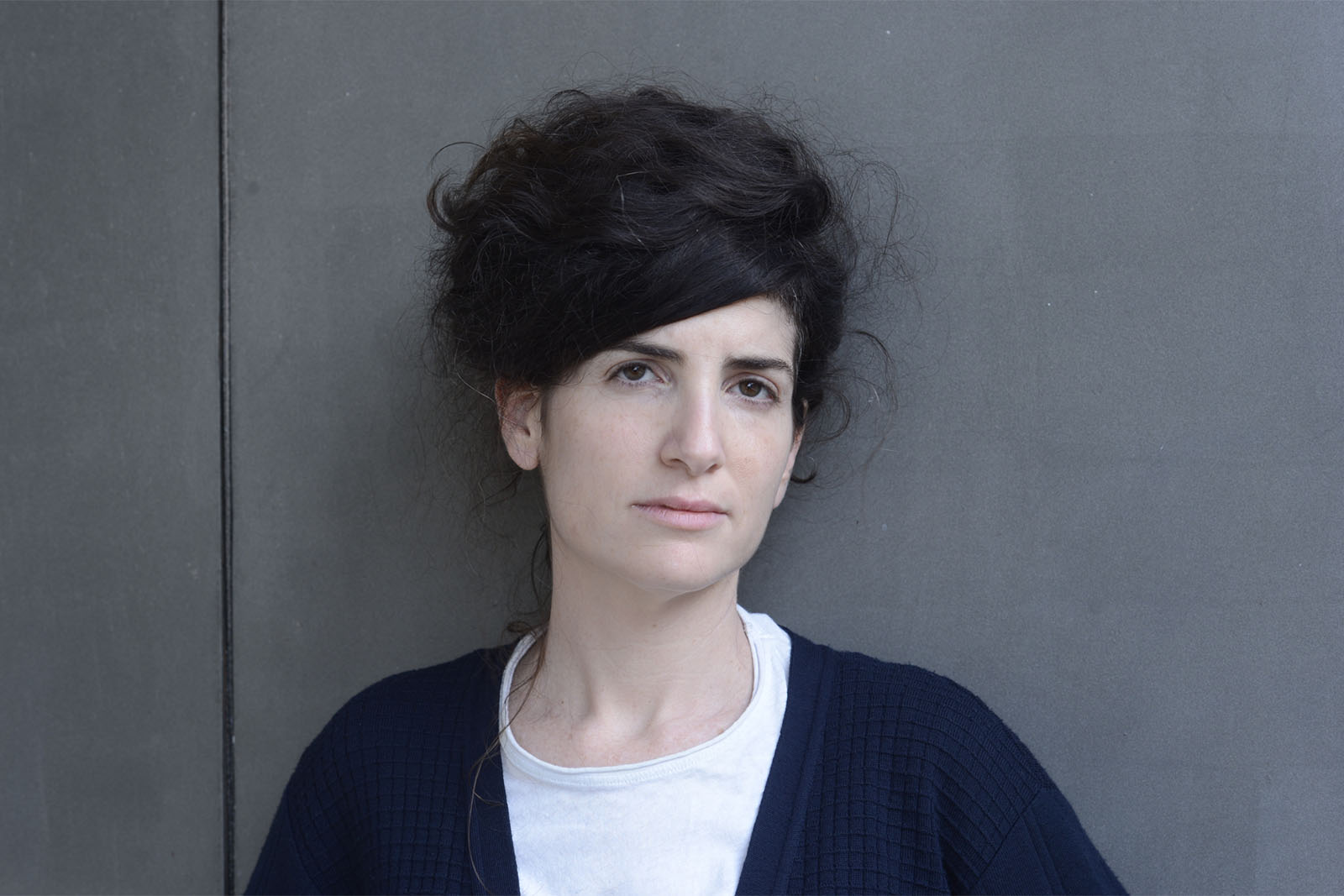
The decision to continue working despite the pandemic was based on the philosophy of the association's director, Dr. Diddy Mymin Kahn.
Garon explains: “People who have been through difficult things and are dealing with post traumatic stress need to do something. They need to be immersed in a craft. The women get paid for every product they produce, regardless of demand. There are piles of baskets up to the ceiling. The most important thing is that they work. It also means taking fabrics and materials home to keep working from there."
In the past, some of the raw materials came from people who traveled to Africa. "Now people have stopped traveling. We have all done a crash course in business, import and export. We started importing African fabrics, and expanded into the production of African bags, purses and bracelets," Garon says.
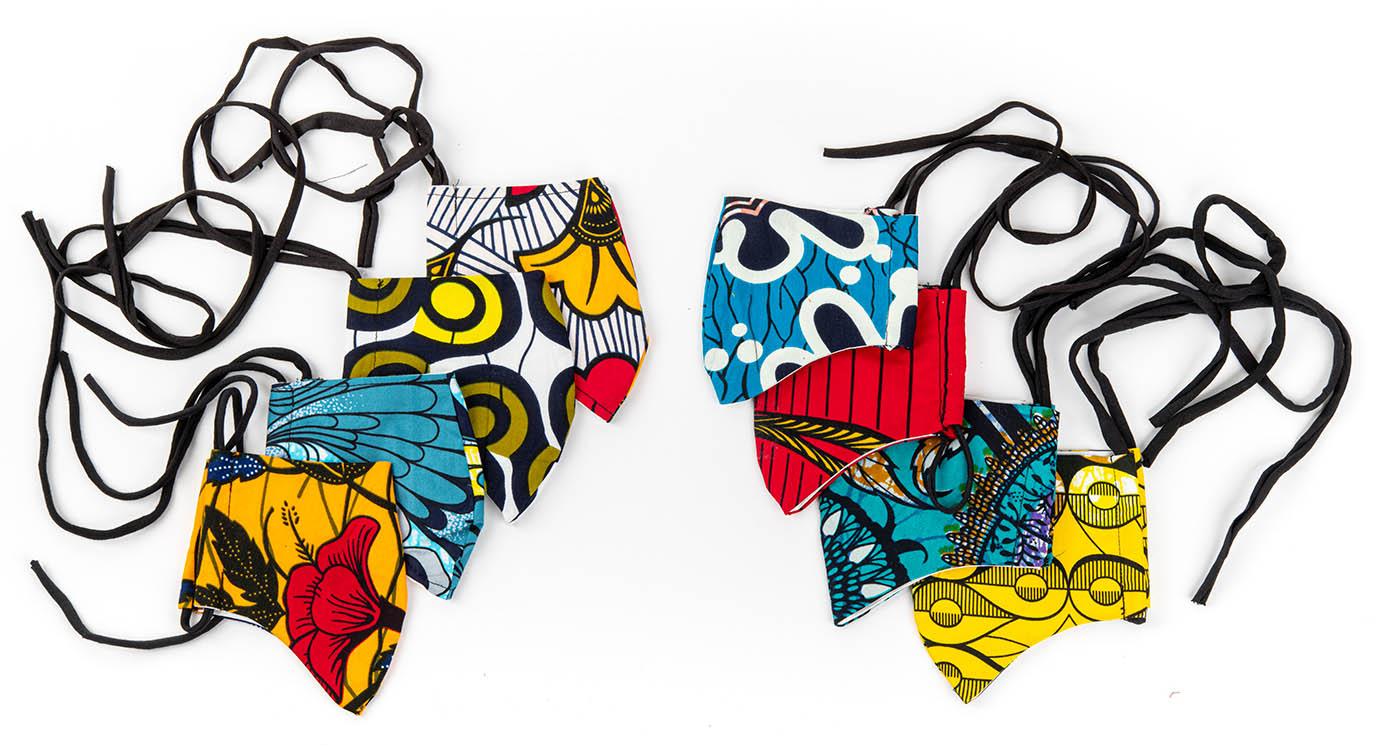
For some women, the change was not easy. "They don’t always want to learn new things because they are in a state of survival," says Garon. "You have no money for a doctor, your child is sick, and you have no money for rent. Now you are told that if you want to make money, you need to learn how to sew.”
"Within a month they learned to sew"
Asmarat Haray, a single mother of two, is responsible for teaching collective members how to sew. She came to Israel nine years ago. "It’s very hard with the kids," she says of the coronavirus lockdowns. “The house is not good, it’s too small. There is a small window, maybe 8 inches, and the kids are home. When the house is not good and there is no air, it is really difficult. But when there is no money, you can’t choose where to live.”
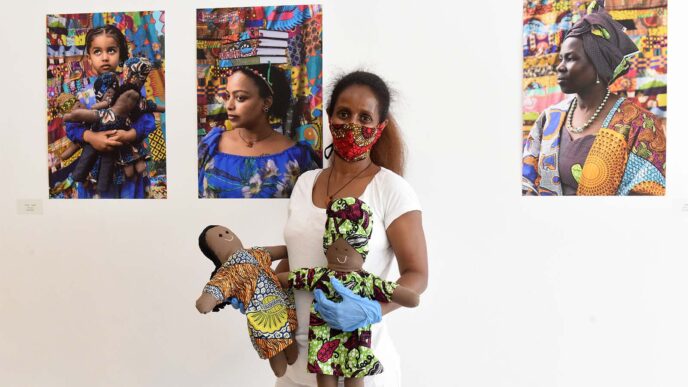
She bought her own sewing machine even before the pandemic began, and sewed African tablecloths on it. At the beginning of the first lockdown, she began to sew masks.
"A volunteer named Sharon came to my house and explained to me how to cut the fabric into masks and we started working. After I studied on my own, I started teaching together with other volunteers,” Haray says.
"At first we were six girls taking turns on the machine. After that they got more machines and ten more girls came in. I taught them from scratch. I was told: 'In the studio we do not have enough space for more than ten people, so you will teach them how to make masks at home.' Now there are six other girls I teach. We have other girls who did a sewing course before the coronavirus at the Tel Aviv Central Bus Station. They came to Kuchinate and said they knew how to sew and that they wanted a job."
"Working with a sewing machine requires quiet"
The training is not simple. "Teaching is hard," she says, "women have big problems learning how to make masks. If you tell them it's hard to make a mask, then they will not succeed. If you tell them it's easy, then the mask may not come out well. In my house, if I have a problem with the machine, I fix it on my own. I'm not afraid to open it up and check what happened. Other people, if there is a thread stuck, they just say it doesn't work. They don't look to see if they can fix it on their own."
The physical distance makes the work even more difficult. If in the past, collective members were used to working together in groups; now, the production has become isolated.
"Working with a sewing machine requires quiet because it's slow, individual work," says Haray. "In making baskets, it is more possible to make mistakes. We just unravel the thread, and we sit together and talk."
People want to make a profit. Because of the coronavirus, there were not many sales and we had a hard time, but we didn’t say no to women who wanted to work. We are trying to help. Still, we are not meeting their needs."
As a product manager, responsible for the quality of the masks, Haray has a sensitive role. "Kuchinate is a business. If you are sold a bad product, then you do not want to buy from us again,” she says. “I tell the other women that if someone makes a good mask, then we can sell it as Kuchinate; if not, then they shouldn’t bring it to us. But it is difficult. There are mistakes that we do end up accepting and we do pay the workers, but we don’t actually sell the products."
She describes a worker who made 99 masks that were too small even for children. "We discussed what to do and decided there was no choice. We gave her money for 99 masks. What else were we going to say to her? There is a coronavirus, she is single, and it is difficult. If you tell her 'you will not get this money', it’s like telling her, ‘you are dead.’ She should survive.”
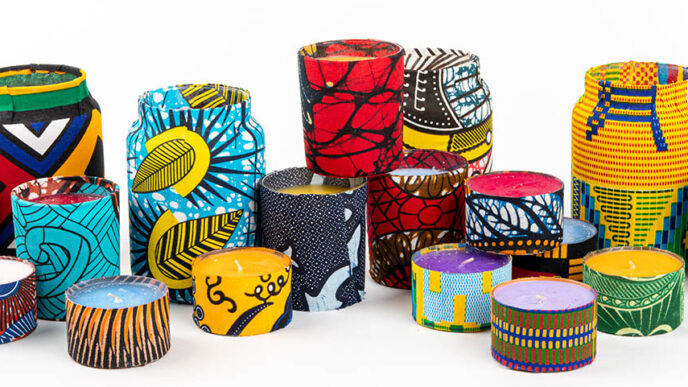
Gabrazerger, as a product manager, also maneuvers between quality control, production planning, and making difficult decisions about women's wages. "The hardest part is when someone wants to work harder, but there’s not more work for them to do," she says. "People want to make a profit. Because of the coronavirus, there were not many sales and we had a hard time, but we didn’t say no to women who wanted to work. We are trying to help. Still, we are not meeting their needs."
According to her, the difficult wage decisions are made in dialogue. "I work with other leaders in the community, and we decide together who needs more help." Among those community leaders, she mentions Sister Aziza, an Eritrean-born nun who is considered a spiritual leader for the community of asylum seekers in Israel.
Entering an Israeli home through the front door
Prior to the coronavirus pandemic, Kuchinate also held sales in private homes, and not just to generate revenue. According to Garon, visiting homes has an added value.
"The sales are often the first time these women have entered an Israeli home,” she says. “They have never been in Israeli homes, except as cleaners. They never entered the front door, especially not as guests of honor. At the sales, they are the center of attention. It is a positive experience. They all live in South Tel Aviv, and suffer from hatred and harassment. In kindergarten their children are told to return to Africa."
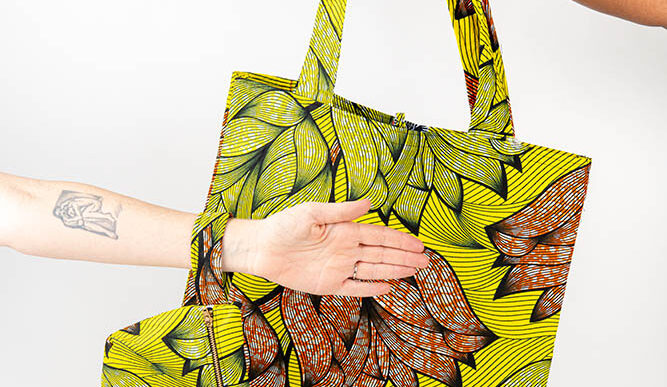
Today, Kuchinate's products are mainly sold in an online store. "The masks are bought in the thousands," says Garon. "It has become our most popular product."
The price of the mask, 35 shekels, is relatively expensive. "We are not cheap, because we pay a fair wage to every woman," she explains. "The state fights against asylum seekers and makes it difficult for employers. Their salaries are taxed heavily. If a woman receives NIS 30 an hour, then in total the employer pays 45 NIS with taxation."
"Kuchinate is my light"
The economic model of the collective is currently built on donations, though not by choice. "Our desired model," says Garon, "is that everything will be from revenue from production and less from donations. That's the challenge. But in a catastrophic situation like coronavirus, it is impossible to know what will happen next year. The future of the economic crisis is foggy."
But even in the difficult period, Garon recognizes a significant positive change. "The coronavirus was a time for change and big developments for the better, like the new skills the women developed. They are amazing heroines. The leaders from the community are the ones who led the change. They learned to sew and they encouraged each other."
"Kuchinate is my light," says Haray. "Before corona, it was not clear to the women why I say it is my light.ow it is clear."
"If it had not been for Kuchinate during the pandemic, I do not know what would have happened," says Gabrazerger. "It helped a lot of people. Not just us. There are a lot of people who say, 'If it weren't for Kuchinate, what would we do?' It's as if God sent us something.”






